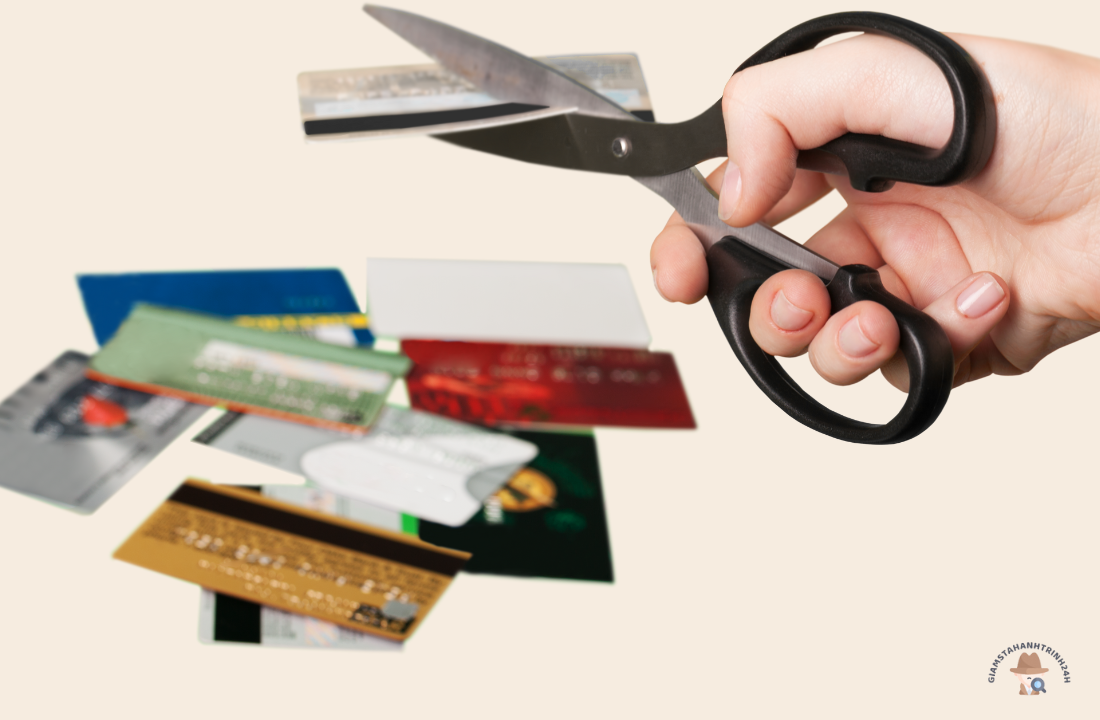Your credit score is an important number that can greatly impact your financial life. It is a reflection of your creditworthiness and can determine whether you are approved for loans, credit cards, or even rental agreements. A high credit score can open doors to better interest rates and more favorable terms, while a low credit score can limit your options and cost you more in the long run. That’s why it can be concerning when you notice a sudden drop in your credit score, especially if it drops by 20 points or more. In this article, giamsathanhtrinh24h.vn and you will explore the various reasons why your credit score might drop by 20 points and what you can do to improve it.

Missed or Late Payments: The Most Common Reason for a 20 Point Drop
One of the most common reasons for a sudden drop in credit score is missed or late payments. Your payment history is one of the most significant factors that make up your credit score, accounting for 35% of the total score. This means that even a single missed payment can have a significant impact on your credit score, and multiple missed payments can cause it to drop by 20 points or more.
How Missed or Late Payments Affect Your Credit Score
When you miss a payment or pay late, it is reported to the credit bureaus and stays on your credit report for up to seven years. This negative mark can lower your credit score and make it harder for you to get approved for credit in the future. The severity of the impact depends on several factors, such as the number of missed payments, how recent they are, and the type of account they are associated with.
For example, a missed payment on a credit card can have a more significant impact on your credit score compared to a missed payment on a utility bill. This is because credit cards are considered revolving credit, meaning you can continuously use and repay the credit, while utility bills are considered installment credit, where you pay a fixed amount each month.
How to Avoid Missed or Late Payments
The best way to avoid missed or late payments is to stay organized and on top of your bills. Set up automatic payments or reminders to ensure that you never miss a due date. If you do happen to miss a payment, try to make it as soon as possible. While it won’t erase the negative mark from your credit report, it can prevent further damage to your credit score.

Another helpful tip is to contact your creditor if you are having trouble making payments. They may be willing to work out a payment plan or offer some flexibility to help you avoid missing payments. Remember, communication is key when it comes to managing your credit.
Opening Too Many New Credit Accounts in a Short Period of Time
Another reason why your credit score might drop by 20 points is if you have opened too many new credit accounts in a short period of time. This can be a red flag to lenders as it suggests that you may be overextending yourself financially. It can also indicate that you are desperate for credit, which can be seen as a sign of financial instability.
How Opening Multiple Credit Accounts Affects Your Credit Score
When you apply for a new credit account, the lender will perform a hard inquiry on your credit report. This inquiry stays on your credit report for up to two years and can lower your credit score by a few points. However, if you open multiple accounts within a short period, it can signal to lenders that you are taking on too much debt, which can significantly impact your credit score.
Additionally, opening new credit accounts can also affect the average age of your credit history, which makes up 15% of your credit score. If you have a long credit history, opening a new account can lower the average age, which can also lower your credit score.
How to Avoid Opening Too Many New Credit Accounts
The best way to avoid opening too many new credit accounts is to only apply for credit when you need it. Don’t be tempted by store credit cards or promotional offers if you don’t have a specific use for them. Also, try to space out your credit applications to avoid multiple hard inquiries within a short period. If you are looking to improve your credit score, it’s essential to be mindful of how often you apply for new credit.
High Credit Utilization Ratio: Using Too Much Credit
Your credit utilization ratio is the amount of credit you are using compared to the total credit available to you. For example, if you have a credit card with a $10,000 limit and you have a balance of $5,000, your credit utilization ratio is 50%. A high credit utilization ratio can be a sign that you are overusing your credit, which can cause your credit score to drop.

How Credit Utilization Ratio Affects Your Credit Score
Credit utilization ratio is another significant factor that makes up your credit score, accounting for 30% of the total score. A high credit utilization ratio can signal to lenders that you may be relying too heavily on credit, which can be seen as a risk. It can also suggest that you are struggling to manage your debt, which can negatively impact your credit score.
How to Improve Your Credit Utilization Ratio
The ideal credit utilization ratio is below 30%, meaning you are using less than 30% of your available credit. To improve your credit utilization ratio, you can either pay down your existing balances or request a credit limit increase. Paying down your balances will reduce the amount of credit you are using, while a credit limit increase will increase the total credit available to you, effectively lowering your credit utilization ratio.
However, be cautious when requesting a credit limit increase, as it can result in a hard inquiry on your credit report. Also, be sure not to use the increased credit limit as an excuse to overspend and accumulate more debt.
Errors on Your Credit Report
Your credit score is based on the information in your credit report, so it’s essential to ensure that the information is accurate. However, errors can occur on your credit report, and they can negatively impact your credit score. These errors can range from incorrect personal information to accounts that don’t belong to you or inaccurate payment history.
How Errors on Your Credit Report Affect Your Credit Score

Errors on your credit report can lower your credit score by a few points or even cause a significant drop of 20 points or more. For example, if there is a late payment reported on your credit report that you know you made on time, it can significantly impact your credit score. This is because your payment history is one of the most critical factors in determining your credit score.
How to Fix Errors on Your Credit Report
The first step to fixing errors on your credit report is to review your credit report regularly. You are entitled to one free credit report from each of the three major credit bureaus (Equifax, Experian, and TransUnion) every year. If you notice any errors, you can dispute them with the credit bureau and provide evidence to support your claim. The credit bureau has 30 days to investigate and respond to your dispute.
Closing Old Credit Accounts
Closing old credit accounts can also cause your credit score to drop by 20 points or more. This is because it can affect both your credit utilization ratio and the average age of your credit history.
How Closing Old Credit Accounts Affects Your Credit Score
As mentioned earlier, your credit utilization ratio is the amount of credit you are using compared to the total credit available to you. When you close an old credit account, you are reducing the total credit available to you, which can increase your credit utilization ratio. This can negatively impact your credit score.

Additionally, closing old credit accounts can also affect the average age of your credit history. If you have a long credit history, closing an old account can lower the average age, which can also lower your credit score.
When to Close Old Credit Accounts
While it’s generally not advisable to close old credit accounts, there are some instances where it may be necessary. For example, if the account has an annual fee that you no longer want to pay, or if you are struggling to manage multiple credit accounts, closing one or two may help simplify your finances. However, be sure to consider the potential impact on your credit score before making a decision.
Conclusion: Maintaining a Good Credit Score is Key
In conclusion, there are various reasons why your credit score might drop by 20 points or more. The most common reasons include missed or late payments, opening too many new credit accounts, high credit utilization ratio, errors on your credit report, and closing old credit accounts. It’s essential to monitor your credit score regularly and take steps to improve it if you notice a sudden drop. By staying organized, making timely payments, and being mindful of your credit usage, you can maintain a good credit score and open doors to better financial opportunities in the future.
giamsathanhtrinh24h.vn

